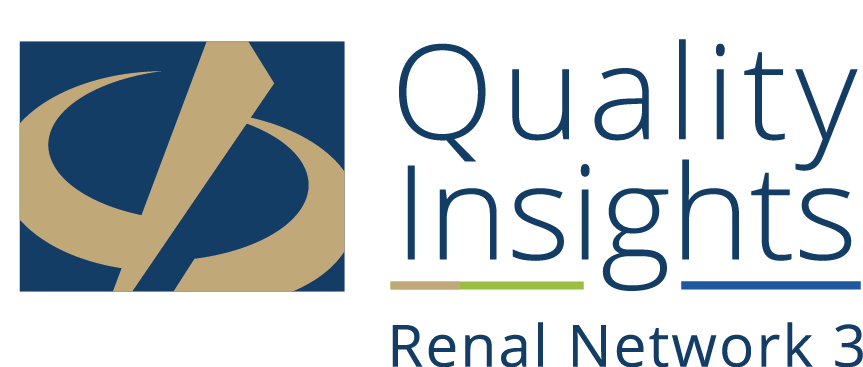Patient & Family Engagement
Quality Insights Renal Network 3 is interested in ensuring the patient is the center of the health care team. As a part of this goal, we are committed to educating both patients and providers in the concept of patient engagement. Patient engagement is a connection between patient, caregiver and health care provider. Engaged patients are empowered patients who become a part of the health care team. Collaboration and communication are important in the development of an empowered patient and a dialysis facility that is truly focused on patient engagement.
Used the tabbed menu below to access our Patient & Family Engagement Resources.
It is our mission that patients, their families, and caregivers have the opportunity to collaborate in their Plan of Care meetings as valued members of their interdisciplinary team (IDT). This involvement provides them the opportunity to share their personal experiences, values, preferences and life goals. Doing so ensures that their voices are heard and their insight is used to formulate interventions that will benefit their individualized quality of care.
Let’s refocus on:
-
The real value of the Plan of Care
-
Helping patients better understand and participate in their care planning
-
Assisting facilities to revitalize integration of patients in care planning
Step 1
All members of the facility’s interdisciplinary team must watch the following “Life Plan – Plan of Care” Program Kick Off video. Following on the next page after watching the video, you will be asked to attest to having watched it.

Life Plan, Plan of Care Program: Video Attestation
Step 2
Use the following My Dialysis tools to align dialysis care with patient-identified priorities, promote care individualization, and improve the care planning experience.
Step 3
All members of the facility’s interdisciplinary team must watch the following “How to” video and attest to having watched it by clicking SUBMIT at end of the page (within the same page where the video is found). The QR Code will lead you to the video/attestation page.
Below you will also find the My Dialysis Plan Tracker & Quarterly Report links. Use the My Dialysis Tracker to gather monthly data for implementation of the My Dialysis tool and plans of care. Reporting links and QR codes are found in the same page as the tracker. Instructions are provided in the “How to” video. My Dialysis Plan Tracker and Reporting Links (English / Spanish)
My Dialysis Plan Tracker and Reporting Links (English / Spanish)
 "How To" Instructional Video: My Dialysis Plan Monthly Tracking and Completing the Quarterly Report
"How To" Instructional Video: My Dialysis Plan Monthly Tracking and Completing the Quarterly Report
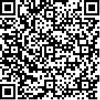
Supportive Resources
Patient and family engagement has been increasingly recognized as an integral component of health care and a critical element of patient centered services. Developing a sound process for incorporating the patients and families’ voice helps establish the foundation for an open and transparent health care system. It is our ongoing effort here at Quality Insights Renal Network 3 to support dialysis providers with these efforts. As a result we’ve developed the “Empowering Partners for Improved Care” program.
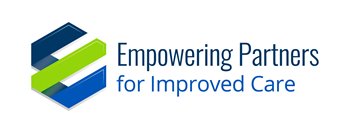
Empowering Partners for Improved Care – Full Program (English / Español)
Step 1
All members of the facility’s interdisciplinary team must watch the following “Empowering Partners for Improved Care” Program Kick Off video. Following on the next page after watching the video you will be asked to attest to having watched it.

Empowering Partners for Improved Care Program Video & Attestation
Step 2
Use the following documents to establish a process for ongoing Recruitment/Participation of Patient and Family Member Representatives in your facility’s QAPI meetings. Please note, you do not have to submit any of these documents to the Network.
-
Interdisciplinary Team Acknowledgment & Commitment of Support (English / Español)
-
Patient/Family Member Facility Recruitment Letter (English / Español)
-
Patient & Family Representative Participation/Membership Policy (English / Español)
-
Patient & Family Member Representative Registration Form (English / Español)
Step 3
Invite and engage patients/family representatives in your facility’s monthly QAPI meetings!
Step 4
Use the “Patient and Family QAPI Meeting Participation: Action Items” (English / Español) form to help your team manually capture action items/outcomes from Patient/Family Facility Representative participation in your facility’s QAPI meetings. Please note that using this form is optional. If completing this form, please do not fax to the Network, see next step.
Step 5 - Required Monthly
Document Patient/Family Facility Representative participation in QAPI meetings utilizing the following Network Online Report. Please note that reporting is required for every month a facility engages patients in a given QAPI meeting. If a facility did not have a patient and/or family member participate in the facility’s QAPI meeting three consecutive months please complete this form as well to identify barriers and action plans to overcome barriers.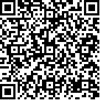
 Facility Monthly QAPI Meeting Reporting
Facility Monthly QAPI Meeting Reporting
 "How To" Video Instructions: Reporting Patients' QAPI Meeting Engagement
"How To" Video Instructions: Reporting Patients' QAPI Meeting Engagement
Facility Monthly QAPI Meeting Report
Supportive Resources
-
5 Strategies for Streamlining Patient Engagement in Health Care
-
Help Patients Understand Their Role in Quality Assessment & Performance Improvement (QAPI)
-
Quality Assurance Performance Improvement: Engaging Patients in a Virtual Environment for QAPI
-
World Health Organization: Patient Engagement: Technical Series on Safer Primary Care
EPIC Podcast
We have officially launched our Empowering Partners for Improved Care (EPIC) podcast! Each month you will hear informative interviews about patient, family and staff engagement initiatives, including barriers and proven practices that may impact your own interventions.
 Episode 1 (Aug. 2022) – Facility staff shares first patient engagement experience in their monthly QAPI meeting.
Episode 1 (Aug. 2022) – Facility staff shares first patient engagement experience in their monthly QAPI meeting.
EPIC Podcast October 2022 Episode
 Episode 2 (Oct. 2022) - Two patient Subject Matter Experts (SMEs) share their experience as active participants in their facility’s monthly QAPI meetings.
Episode 2 (Oct. 2022) - Two patient Subject Matter Experts (SMEs) share their experience as active participants in their facility’s monthly QAPI meetings.
 Episode 3 (Dec. 2022) – Facility staff shares implementation of the My Dialysis Plan as part of their patients’ plans of care.
Episode 3 (Dec. 2022) – Facility staff shares implementation of the My Dialysis Plan as part of their patients’ plans of care.
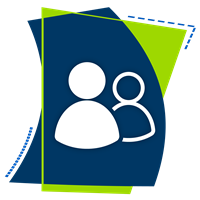
The Network’s Peer Mentoring Program offers a structured environment for people with kidney disease to develop one-on-one relationships while providing experiential support from peer mentors to peer mentees. In addition, it advocates for patient education through the Kidney Learn
ing Hub, the program’s learning management system, and encourages patient peers to engage one another to remain active by sharing the lived experiences of their ESRD journey. The strategies and tactics referenced in this toolkit offer a starting point for dialysis providers to develop and implement this program in their center.
Benefits of the Peer Mentoring Program
-
Enhanced communication and understanding between staff and patients.
-
Meet the Centers for Medicare & Medicaid Services (CMS) Quality Incentive Program (QIP) requirements.
-
Improve patients’ knowledge and empower patient self-efficacy.
-
Increase patients’ socialization with one another and their facility patient representatives.
-
Improve facility and patients’ outcomes.
-
Improve home dialysis and transplant referrals and/or patient interest.
-
Improve new patients’ adjustment to the facility and demands of treatment.
Step 1 - Program Video
Members of the interdisciplinary team must watch the “Network & Facility Peer Mentoring Program” kick off video and attest to it.
Step 2 - Referral Form or Application
Use the following application to nominate/recruit mentors or mentees. Submit all completed forms via fax to Yessi Cubillo at (609) 490-0835.
Step 3 - Kidney Learning Hub
Mentors and mentees should register on the Kidney Learning Hub at www.kidneylearninghub.com.
Step 4 - Peer Mentoring Education Program
Mentors should access the Peer Mentoring Education Program and take the required courses.
Upon finishing the courses and orientation, peer mentors will be given a Certificate of Completion. The certificate acknowledges that the peer has completed the necessary activities to become a facility peer mentor.
Step 5 – Pairing Peers
For in-person pairings, consider the timing of mentor and mentee treatments and transportation and try to coordinate so that peers can meet before or after their treatment. Using the peer Referral Form and in collaboration with the dialysis facility, patient peers should have similar communication styles. Situations can arise where the dialysis facility or Network Peer Mentoring Champion may need to intervene to support the peers. Always be mindful that sometimes pairings just don’t work out, and no one is to blame should this happen. Encourage the mentor and mentee to try meeting again or consider being paired with another patient peer.
This is a confidentiality waiver, which must be signed by both the mentor and mentee.
The resources below can be found on the Kidney Learning Hub and are designed to support peers in their mentoring relationship.
-
Share the “A Patient Peer Mentoring Program" video with patients while on treatment, lobby TV, etc.
Step 6 - Monitoring and Tracking Peer Mentoring Activities
Peer mentor log form:
-
Measure activities of mentoring.
-
Do not share information about discussions between mentors and mentees.
-
Will be used to collect/assess weekly mentoring outcomes or lack thereof.
-
Log can be emailed or faxed to assigned Network staff.
This is for the mentor to complete and provide to the staff or directly to the Network.
Supportive Resources
Additional Kidney Patient Support Opportunities
-
Renal Support Network (RSN) HOPEline (A Peer Support Hotline - "Support from Someone Who's Been There)
-
(800) 579-1970 (Toll-Free from 10:00 a.m. to 6:00 p.m. PT)
-
-
GetSetUp (English Flyer / Spanish Flyer)
-
In an effort to combat social isolation, the NJ Human Services Department has partnered with GetSetUp, an interactive online learning community, to provide free, live virtual classes for New Jerseyans ages 60 and older. The GetSetUp platform offers live classes taught by peers who are experts in their field, social hours hosted by community members, and special events with speakers who directly address areas of interest to older adults. You may choose from more than 500 available classes on a range of topics such as aging in place, computers, budgeting, mental fitness, and more. Classes are offered 24 hours a day in English, Spanish, Hindi and Mandarin.
-
The following resources are intended to help promote the concept of patient engagement. New resources will be added as they become available.
March 16, 2022 - Health Equity: Collaboration in Action - A Conversation with Andrea Moore
Linked Resources
-
Patient-Centered Care Improvement Guide - A guide designed to translate patient-centered care into a concrete concept.
Resource Library
Click on the resources below to download PDFs. Having trouble viewing? Access via this link.

